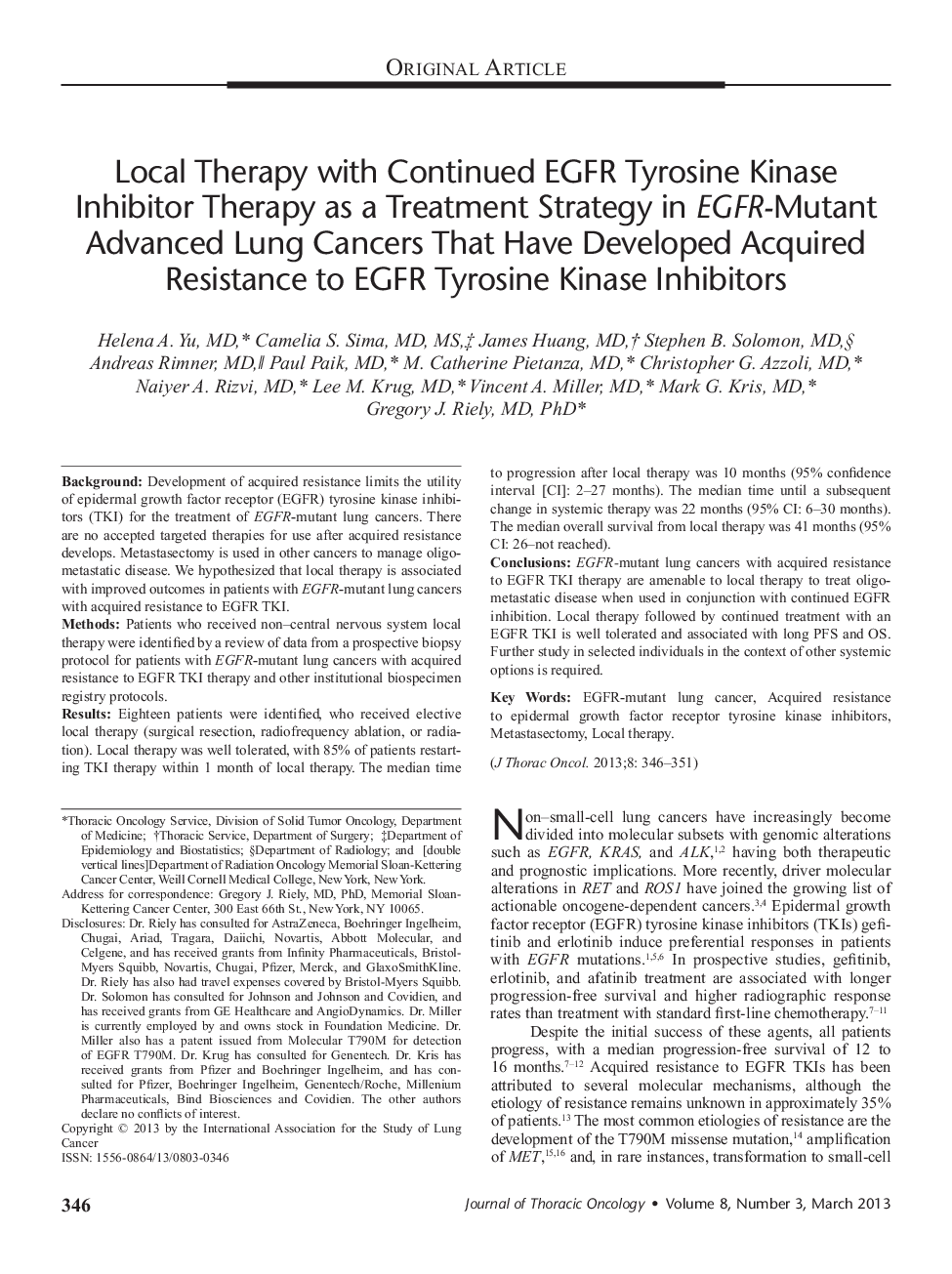| Article ID | Journal | Published Year | Pages | File Type |
|---|---|---|---|---|
| 3990080 | Journal of Thoracic Oncology | 2013 | 6 Pages |
BackgroundDevelopment of acquired resistance limits the utility of epidermal growth factor receptor (EGFR) tyrosine kinase inhibitors (TKI) for the treatment of EGFR-mutant lung cancers. There are no accepted targeted therapies for use after acquired resistance develops. Metastasectomy is used in other cancers to manage oligometastatic disease. We hypothesized that local therapy is associated with improved outcomes in patients with EGFR-mutant lung cancers with acquired resistance to EGFR TKI.MethodsPatients who received non–central nervous system local therapy were identified by a review of data from a prospective biopsy protocol for patients with EGFR-mutant lung cancers with acquired resistance to EGFR TKI therapy and other institutional biospecimen registry protocols.ResultsEighteen patients were identified, who received elective local therapy (surgical resection, radiofrequency ablation, or radiation). Local therapy was well tolerated, with 85% of patients restarting TKI therapy within 1 month of local therapy. The median time to progression after local therapy was 10 months (95% confidence interval [CI]: 2–27 months). The median time until a subsequent change in systemic therapy was 22 months (95% CI: 6–30 months). The median overall survival from local therapy was 41 months (95% CI: 26–not reached).ConclusionsEGFR-mutant lung cancers with acquired resistance to EGFR TKI therapy are amenable to local therapy to treat oligometastatic disease when used in conjunction with continued EGFR inhibition. Local therapy followed by continued treatment with an EGFR TKI is well tolerated and associated with long PFS and OS. Further study in selected individuals in the context of other systemic options is required.
